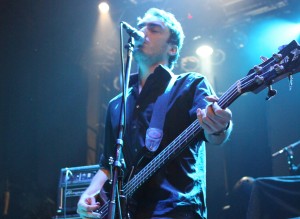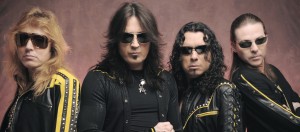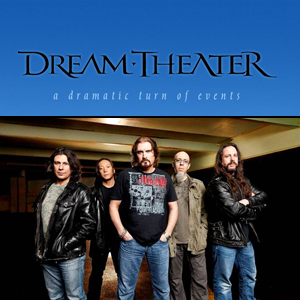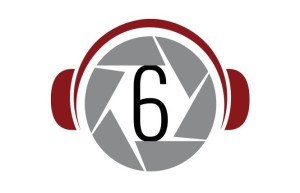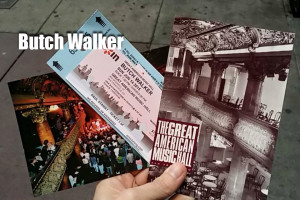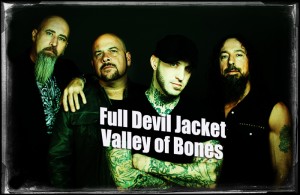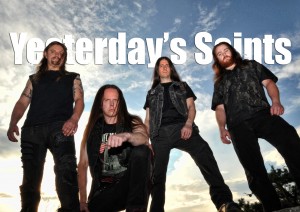Devil’s Advocate: A Conversation with The Devil Wears Prada
22 min read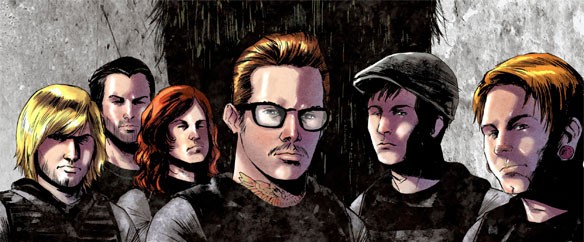
I first encountered The Devil Wears Prada in concert at the Wiltern Theatre in Los Angeles. Even though they were playing under the headliner Killswitch Engage, they were the surprise of the night outperforming everyone else on stage including Killswitch. (See our review of the show here.) Before that show, I didn’t even know who they were. By the end of the night, I was declaring them that night’s winner. And technically nobody is supposed to win a concert. In any case, TDWP, is far from your typical band with a sound that seems to consistently find a place on the Billboard charts despite owning a style that one would assume isn’t even close to being chart friendly. But that’s the thing with TDWP, I’m not sure they care what anyone else thinks just so long as whatever they do, they get to do it their way. After all, they’ve released a Zombie EP for crying out loud. In any case whatever the reason for their success, I have a feeling they are just scraping the surface of what they would like to explore when all is said and done. So no matter how you dissect it they certainly aren’t your typical band. Even as I was on their tour bus sitting opposite the band’s lead screamer, Mike Hranica, I wondered what sort of an interview they would give me. To my surprise, Mike was very open an honest about the band, the EP and his expectations for their future.
C6M: Okay. Let’s talk a little bit about the band and the formation of the band, and how you got your name. I’ve read some of it, but just in your own words.
Mike Hranica: The band was formed back in 2005. Originally, it was Dan, Chris and James who started kind of putting together songs and what not. I joined the band shortly after, wrote more songs, and after playing like two or three shows, they found Jeremy and Andy who joined, and we’ve maintained the same lineup.
We signed our record deal early 2006. We toured summer of 2006, went back to school for the year, and then started full time touring 2007. We’ve had three full lengths done, countless tours and an EP on the way.
C6M: Yeah. I caught you guys at the Wiltern, when you were touring with Killswitch Engage, and in my opinion you guys kind of stole that show, especially given the fact that they had a replacement singer who didn’t finish his set.
Mike Hranica: Yeah.
C6M: But do you feel like that tour and previous tours like the Warped Tour — well, let’s go back a little bit. What were the major differences in doing something like a festival versus going out and doing something with Killswitch?
Mike Hranica: We’ve done a lot of the A market tours, that are like — we usually hit about the same venues in every city. We did it with Chiodos, and we did it with Silverstein, and we did it with Underoath, and then we did it on our own with A Day to Remember.
We’ve done — we did all that, we’ve done the Warped Tour two years, and then just recently we did the Killswitch tour. Primarily, the difference is that Killswitch draws a little bit older of an audience, which is why we really want to do the tour.
A lot of the venues, there were no small venues, they were all massive. The ticket price is a little bit more, because Killswitch has a lot more production in their show and everything. So, I’d say that’s the most primary differences in the tours.
We got along with Killswitch really well. It’s sweet to tour with bands like Killswitch and Underoath, just because we’ve looked up to those bands for so many years now. The Killswitch tour, when we heard about it, we really, really wanted to do it, because we were trying to get a little bit older of an audience
C6M: I have to say it worked, because before the Killswitch show, which we covered, I hadn’t heard of you guys, didn’t know who you were, and I thought it was a book, right? So, the surprising part was, I walked out going, “Who are these guys? These guys are pretty good.” Did you find that that was the case that you got, what you were looking for?
Mike Hranica: Yeah. It was a lot of positive feedback. Early in our career, summer of 2007, we did Sounds of the Underground, which was headlined by GWAR, and Chimaira was on it, Shadows Fall.
Back then, I think maybe not so much GWAR, but we could hang with the other bands on the tour, but back then we were really young and we were playing most of the songs — most of the songs we played were from our first record and a few from the Plagues, which hadn’t come out yet.
I can totally see that audience seeing us and not liking us, because we didn’t do so well on that tour. It was just a lot of criticism and middle fingers and all this. And kind of what we’re trying to do is go back to that, which is why we did Killswitch and why we did All that Remains co-headline and stuff.
This time around, it’s been great feedback. It’s not like middle fingers and people all pissed off. It’s been really good, and we knew that being older now and having heavier material, and being able to present ourselves as a heavier band, as we intend, we know that we can pick up those fans.
C6M: Well, my follow up is that’s just sort of what I noticed as well as I went back into your catalog moving forward, is I sort of felt like you added a bunch of dimensions as you progressed, and added more layers and it was a deeper, fuller, more exciting sound. I mean it almost — it went from sounding like — the first album sounded like something…
Mike Hranica: Crap.
C6M: Well, not really crap.
Mike Hranica: To me it’s crap.
C6M: Well of course, as an artist you’re always going to be critical of your work, and of course, because you want to strive to be better. But going back to that though, it was okay as far as the sound…but I really felt like as if you went to the next album, and the next album it was like bigger and bigger. I mean was that the intent, you were like trying to grow it that way, so that it was just full?
Mike Hranica: Yeah, the production was stepped up, which was a big part of With Roots Above as far as when it came to like the keys and orchestras and stuff, Joey, who’s done all three of our records, really came and stepped it up.
But I think what’s even more important than that is just the natural progression of the members in the band, and the fact that — Chris has always been the one that writes most for us, as far as songwriting to the riffs within the songwriting, like the formula.
He started doing it when he was 16 or 17, and now on the newest record, he’s like 20, 21 and it’s like it’s not — for anybody that plays guitar, they’re going to get better. That’s just what happened. I always feel like it was easy for our newer stuff to be so much thicker and so much more full because the early stuff was just really basic.
That’s because we were young. We weren’t the musicians that we could be, and we still have a lot more room to grow and moving forward.
C6M: Right. So, let’s talk a little bit about the EP. Whose idea was it, and…?
Mike Hranica: It was my idea to do a zombie song because of all the books I was reading, and Zombieland had just came out coincidentally, which was on the TV up there. That day, we were on our way to go see Zombieland. We were in Scotland, and I was like, “What if we made a zombie song, like just something evil, something thrashy, like Circle Pit?”
From then to me saying that till the end of the evening, we had our hearts set on doing an EP of zombie songs, and we had already reached out to our manager, and like kind of begin the process as far as presenting it to the label and really making it happen. So, just like that, we were like, “Let’s do a concept EP that’s just frigging fast and hard.”
C6M: I got to hear it, and it really felt like it was like a film in five acts. Was that also the intent of telling like a story that could be almost viewed as a movie or as a concept that later on could become something else?
Mike Hranica: Yeah. I’ve actually thought about that, if we actually did like a follow up year and years down the road. It’s possible, because I know I could write. We could all write more of what we did on the Zombie EP, but we wanted to keep it in EP, because you know the full length would have just been too much.
I think that would have lost its sense of being so relentless. But I don’t know, like lyrically they all follow each song as a strict theme, but the songs don’t really tie together. The only song that has like a story and a character is the last song, “Survivor.”
But I don’t know, each song — and we actually did serious song titles for once that kind of describe what’s going on in each song and what the lyrics follow.
C6M: Well, let’s get back to then what leads back into your past, which is you have serious songs with not so serious song titles. So, was that sort of an accident that just kept going or was it…?
Mike Hranica: Kind of. We started writing songs, and we never even thought about like putting the CDs in stores or I didn’t know what a record deal was, I didn’t know anything. That’s how we all were, and we made these songs and then we weren’t doing anything with them besides playing them, so we just gave them numbers.
We still do that actually when we write records. The first song we would write is one. We do that, like one through 10 every time, and then when it’s time, we put these stupid names over them, because originally when it was time, we had to have song titles, because we were making this EP that we put out ourselves and just sold at our shows.
We had to have song titles, and we always liked the bands that did less serious song titles, and it was something that just seemed fun, and it’s kind of like a release as far as doing something goofy, being the fact that we tend to be not so serious a lot of the time.
So, we ended up doing it, and then it kind of just stuck. Then on With Roots Above I even suggested doing serious song titles, and the rest of the band was like “No, we need to keep doing the stupid ones,” so maybe some day.
C6M: You think some day maybe?
Mike Hranica: I don’t know. Yeah, I think it’s possible, because I kind of forced us into doing serious song titles for the Zombie EP, and I think it would — I think it’d be cool to do serious song titles and something easy to come up with for our next album, but we’ll see. Maybe I’ll be able to convince them.
C6M: Yeah. Well, you know — and not that it really detracts, because when you sit down and you start reading the lyrics, obviously it’s multi-layered as well.
So, I was reading that you — a lot of the members, I’m not sure if all of the members, but that there is a definite connection to faith in your music. Do you feel strange going out there and being those guys or do you feel like nobody looks at you that way?
Mike Hranica: I don’t think people really look at us that way, or at least I hope not. It was kind of scary, like on Sounds of the Underground, because that’s where we received more criticism than any other tour, as far as going out there and saying, “Hey, we believe in God, and we think it could help your life.”
That was the only tour where we really struggled with it. There have been, very rarely, times where bands don’t give us the respect that we give them. That’s a big bummer, but it’s like 99% of the time everybody is just hanging — like we all share faith in God and belief in Christ, but that doesn’t mean we’re like any different.
C6M: Sure.
Mike Hranica: We’re just a touring band. I guess if it came down to judgment, you might be able to say, “Well, members of the band have more of a strict moral system compared to some other bands,” but I don’t know, it’s just always been what the music has been about for us and something we’ve always felt like should be in the music, and just kind of what we went with.
As far as like perception, this is kind of a good example. Yesterday, I checked Twitter after the set, and someone was like — I don’t know how they worded it exactly, but it was something along the lines of being like, “My perspective on Christians is totally different, TDWP band was awesome.”
So, it was like seeing us made them be like — they might have been like not know anything about us and be like, “Oh, they’re Christians, it’s going to be boring.” Even that person had a bad view of Christians, and they’re probably not a Christian themselves, but they were enjoying the music.” That’s who we are and that’s what we hope and what we expect out of all fans.
C6M: Right, because I was noticing, and I had a chance at the Mayhem Fest, talk to Norma Jean, and they’re in the same category. But I was noticing that it was a trend that — I suppose it was less of a big deal that you had artists out there that had a definite stand on things, but were also respected, where in the past it didn’t seem like that.
Though it was very much like if you were a Stryper or if you were somebody else, it was just like, what a joke. Even if there was quality music coming out of there, right away, it was like, “Well, they just quoted something and…”
Mike Hranica: Yeah. You still get that today obviously with the metal metal-heads, but I don’t know, if they can’t have an open mind to something as simple as a band saying one thing, something that’s so miniscule, it’s upfront, but at the same time it’s very minimal. If you can’t handle that, then like I don’t really need you as a fan.
C6M: Sure. And the flip side of that is, it seems almost more offensive to talk about God on the one hand, and you’ll have fans giving you the middle finger, but Slayer can be anti-God. And not to criticize Slayer; Slayer is what Slayer is, and obviously they’ve been around a long time, so it lends itself to — it commands its own respect as far as longevity goes, but it is interesting.
It’s a double edged sword in music. How do you feel about — just talking about fan comments, I noticed one in particular when I was looking at one of your videos on YouTube of — it was off of the last album.
Mike Hranica: “Assistant” or “Danger?”
C6M: It was — let me see, “Louder than Thunder.”
Mike Hranica: Okay. “Louder than Thunder” is…
C6M: Yeah. People had very positive comments about that song and…
Mike Hranica: The weird thing is that people were so — I guess even still just almost like dumbfounded by the fact that we did a slow song with all singing, but I listen to every metal record, and towards the end or right dead in the center, there’s always that slow song, like acoustic with someone singing.
That’s really all we did, and everyone was like really surprised by it. But to us, it was just like the slow song, like the kind of more ballad inspired song. From my end, the fact that I didn’t really have a part in it besides the lyrics and like the track listing and where it’d sit with the other songs, I just wanted to make it sit well within the album, because I find it really cliché when it sits — when bands do the slow song and you know they just…
C6M: The song at track four…
Mike Hranica: Yeah, or the last track. And it’s like I wanted it to be a little bit different than that, and I find like when it comes to slow songs, I think like Underoath and Jimmy Eat World — like a Jimmy Eat World record, there’s like a formula to it, to where like probably about halfway to two-thirds of the way, they’ll do a slow song, and then another couple of songs and then another slow song, but the record just flows perfectly.
I think Underoath does the same thing, especially like to find the great line, as far as it goes real slow kind of — at that same point, a little bit past halfway, but then it still moves, and it still just goes.
I would definitely not give “Louder than Thunder” as much credit as Jimmy Eat World or Underoath, but I wanted to have it enough thought to where we had it somewhere where it didn’t kind of just keep the record flowing and not be as unoriginal as every other metal band’s slow song.
C6M: Sure. Well, did it at least move you that people were moved by it?
Mike Hranica: Yeah. I was stoked on it and so many — this is the first tour where we actually played the song — and they played the song, I don’t have to do anything. Like a lot of people seemed really inspired by it and you see all these — I don’t mean to belittle fans, but then like girls make these videos, like these kind of artsy videos with the song and all this.
And it’s like it is awesome, because I never expected that much of a reaction from it. I remember writing the lyrics for the song, and my intentions for the song, and it really — for me, even though that I didn’t go out and like pour myself into it singing the song, because like I said, I don’t do anything on the song.
I really wanted the lyrics to mean a lot, and they do, and I’m really happy with how the lyrics are and what they mean to me, and the fact that I intentionally wrote something that people could connect with, which is how a lot of our singing parts go.
I write lyrics that are going to be sang to be kind of dumbed down, because I think that’s what makes it a little bit more catchier, easier to remember, and that’s kind of what I did with that song, and I’m glad it’s — people really enjoy it.
C6M: So, talking about the future of your music, do you feel like you guys are moving more towards melody in the music or you have no plan, it’s just record by record?
Mike Hranica: Well, after each record, you look kind of into the next one and think what you’re going to do. From Dear Love to  Plagues, and Plagues to With Roots Above, it’s always just like the heavier stuff is heavier, the catchier stuff is catchier, and the melodic stuff like — and it’s always just the progression, because like I said, we started out so basic, it was easy to get better.
Plagues, and Plagues to With Roots Above, it’s always just like the heavier stuff is heavier, the catchier stuff is catchier, and the melodic stuff like — and it’s always just the progression, because like I said, we started out so basic, it was easy to get better.
Now that With Roots Above is something that we can all look back on, and be like “That’s us.” When we did With Roots Above, we looked back on Plagues and went like “Ugh”, and With Roots Above, we can still look at it and be like, “Yeah, that’s pretty accurate.”
And Zombies, or the Zombie EP is just — I hate to use the word, but brutal. People keep asking if the next record is going to be like the Zombie EP, and I think Zombie EP was natural to us, because we knew we could write music like that, stuff that was a little bit thrashier, stuff that was just relentless and stuff that just didn’t slow down.
I think now that the Zombie EP, even though we only have one song out but people are loving it so much. And I think because they love that song, they’ll love the EP. I think that we will try to focus a little bit more to have like that kind of heavy in it, but at the same time it’s going to be more melodic than the Zombie EP, because I kind of — musically I kind of see the Zombie EP as being a little bit dumbed down.
It’s just like punching. It’s not like — it doesn’t have the pretty parts or like the parts, the real emotional parts that you really feel, or the ambience, and that’s the stuff that we like to do. I think for me, I would like to see the next record be as heavy as — just a lot of heavy stuff, more heavy stuff than With Roots Above, even though I think besides Zombie, it’s our heaviest to-date.
I think we might work more like jam parts, more instrumentally kind of driven stuff. And I think it will be more real — I think right now it’s looking like we’re going to have a different engineer, which is going to really change everything, because everything we do has been with Joey.
Joey will probably have a hand in some of like the synth production, but being engineered by somebody else, I think it’s definitely going to be more real, and I think it’s going to be a good thing for us.
C6M: So, you mentioned fans a little bit, and I’ve had a chance to talk to a few fans that seemed to be very in-tuned with their fan base. I’ve also talked to people who said it’s a waste of time to be on Facebook or whatever, but do you find that that is more helpful than hurtful to be out there, to be connecting to your fans, at least…
Mike Hranica: There’s a line to be drawn. I could talk about this for years, because I’m so weird about fans.
C6M: Because you just had them giving you stuff.
Mike Hranica: Yeah, like I love our fans and we have so many fans that really do get it. I just read the letter from the girl that gave us our Yoohoo, because we love Yoohoo Chocolate Drink, and fans always bring it for us.
Obviously that in itself is the fact that we stay in touch with our fans. We have our fan website, and MySpace has really been phased out, but that used to be like — when MySpace was getting popular is when we were getting popular, and it was just like we just worked it and now, it’s so over-saturated, it really doesn’t work like that anymore.
I think when it comes to fans, some bands don’t have any interaction with fans, and it’s awesome that way, like Coldplay or Interpol, like they don’t really — it’s not really a face to face thing, at least from what I’ve seen.
Then there are bands that like with the internet and with like Twitter alone, it’s like it’s really connected. Like people standing in line at a venue can find out all these “celebrity band dudes” are doing, like eating here with so and so and so, and that kind of gets to me.
C6M: Is that too much?
Mike Hranica: It’s too much for me. Even though certain members of this band are kind of like that, but for me, like I don’t know, I think there’s a line to be drawn, and it’s not so much putting all this stuff on the internet. It’s that all these dudes do it, but they’re never real.
People are like, “He’s really nice, because his tweets are nice,” or whatever, but it’s like people kind of need to see through it. Just because they’re reading his Twitter and his Facebook, and his Tumblr and this and this and this, and you’ve met him once. It’s not real.
That really gets on my nerves, and I feel like our band is a band that should be interacting with fans, and I think we do a pretty good job at it, but me personally, I like to be real and I like to be honest to where I’m — if someone does something and I’m like — it’s just not my personality to stand there and be like, “They’re making really stupid decisions,” and I just smile like I can’t do it, I have to be honest.
When people ask me about certain bands, I tend to be so bitter about bands that — I can’t be like, “Oh yeah, they’re good dudes,” like I have to be honest.
C6M: If you know them, right?
Mike Hranica: I talk trash, and I don’t know, like that’s just how I am, and I hate to see people look up to other people who are just as bitter as I am, but they think they’re God because they seem nice on the internet. I think that’s — it took me a long time to answer this question.
C6M: No, that’s okay.
Mike Hranica: I think that’s what really gets to me, is when people just — it’s like yeah, you have a lot of followers or whatever, but that doesn’t make you a leader, and it definitely doesn’t make you honest or real or a good person.
C6M: So, how do you stay grounded then? I mean if you have that many people throwing that much adoration at you, it’s hard not to…
Mike Hranica: Well, yeah, a lot of people don’t stay grounded, and for me, I could write a list of who those people are, because I can see right through it, I can see right through the BS, and a lot of fans don’t, and that bugs me.
But for me and for the guys in the band, it’s just like I don’t know, I still — seeing people throw adoration at me, I’m like I guess so, like people baked us a cake and gave us drinks today and like signing stuff every day and pictures and stuff…
C6M: And they defend you tooth and nail on the internet if somebody says anything bad, so…
Mike Hranica: Exactly. But I don’t consider myself adored. I guess I feel like technically I am, and you know all the records have sold a lot, the people come out to our shows and everything, but like I just still see myself as a normal person and someone that — I just like to be honest and I like to be truthful.
The fact that some people want to — a lot of people nowadays seem to want to hear what I have to say. It doesn’t make me feel better about myself, because like I need to — my focus is about my own perception, like I can’t think about what everybody else thinks of me, because it’s a waste of time.
I just have to try to be happy with myself and my character and my being within the perspective of like the big picture. I need to see myself, am I making a positive impact? That’s what’s important for me. It’s not about who likes me and who doesn’t, how many people follow me on Twitter and just all that stuff, and that’s just kind of — I guess if you were to say that I’m a grounded person, that would be my explanation.
C6M: Yeah. Well, you sound grounded. I mean and…
Mike Hranica: Thank you, I try.
C6M: Well, I’ve talked to a few people and sometimes you get the whole — like for example, I just talked to Rob Halford, the most grounded guy ever, but the perspective was that he doesn’t do his music for any other reason than he is addicted to it, do you feel like that’s kind of how you are too? It’s like the music is really — the creation of the art is why you’re in this and everything else is gravy to some degree?
Mike Hranica: Yeah. I would never describe it like that, but I can truly relate to it. I mean to say that I’m addicted to the band would be like the fact that when I go home, and like I love being home and be with my girlfriend and my puppy and my roommates, my friends, the city itself, just like all that, like I love it, but if I were to take too much time off, I would go crazy without having lyrics to write and then a song to put the lyrics to, and touring and performing.
Not so much touring, but just playing shows, because that’s what I love about touring, is getting up and going nuts, just punching and doing that. I would say that’s what I’m addicted to. I wouldn’t say that — if someone asked me why are you making music, I wouldn’t say that the only reason was because I’m addicted, but I can understand where that comes from.
I think Rob Halford being a huge metal legend, he’s definitely seen a lot more than me. Like if I were to feel like a lot of fans looked up to me, that’s only a fraction of Rob Halford, because I looked up to Rob Halford, like still do, like Painkiller. But that’s why I would say why he could have that perspective more than me, it’s because he’s been doing it for…
C6M: 40 years, 30 years, yeah, it’s a long time.
Mike Hranica: Oh yeah, oh yeah, so…
C6M: Great. Well, I know that you’ve got your show tonight, so thank you so much for taking your time. Good luck and good luck on the tour and the EP.
Mike Hranica: Thank you. Thank you for having me.
So what does the future hold for The Devil Wears Prada? Only God knows. But if they keep playing they way they are, the future is bright. Once again, special thanks to Mike Hranica for sitting down and being so open. Be sure to pick up the Zombie EP at their website and don’t forget to let them know that Paul sent ya!
By Paul Stamat
![]()
____________________________________________________
Following Photos by Erick Bieger 3/6/10 at The Wiltern (Los Angeles, CA)




